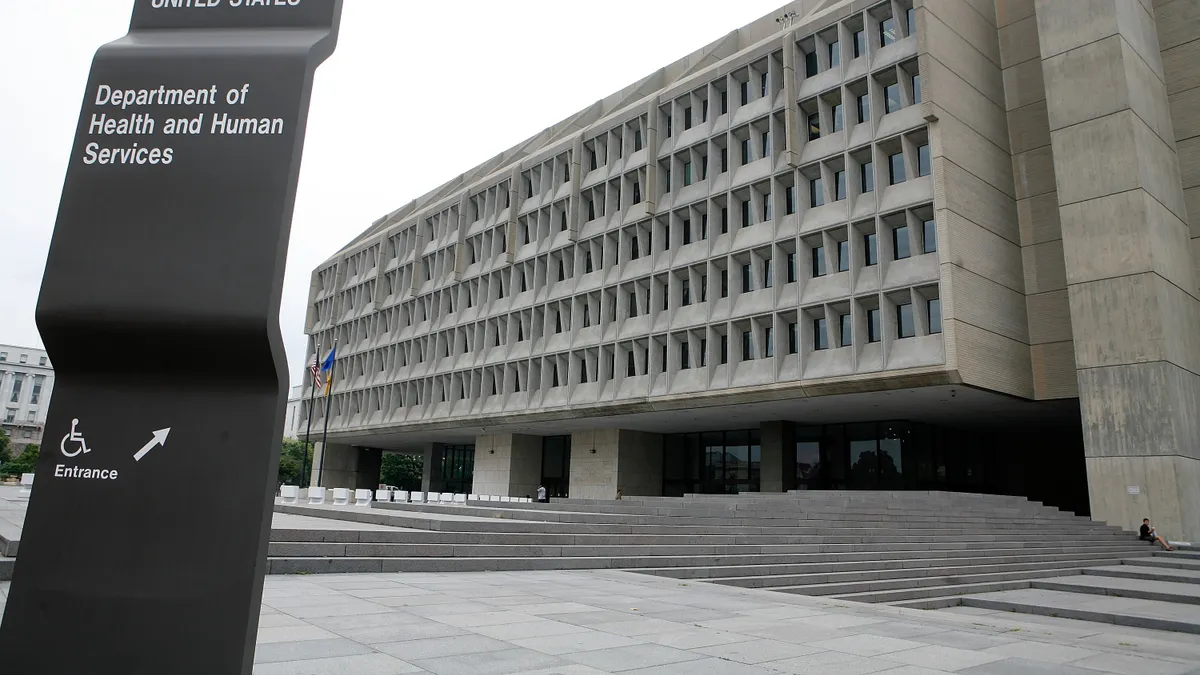Dive Brief:
- CMS on Monday released updated guidance for dialysis facilities operating through COVID-19 surges, clarifying that providers should aim to resume planned surgical procedures considered essential or life-sustaining.
- The guidance came the same day the Department of Health and Human Services issued a progress report on a U.S. kidney care initiative announced by President Donald Trump last summer that would in part shift dialysis treatment away from care centers and into people's homes.
- Baxter is one medtech that responded directly to that initiative, saying it would expand U.S. manufacturing of peritoneal dialysis (PD) technologies, with plans to invest about $500 million in the effort. The company has further touted its PD offerings during the pandemic, citing the home-based technologies as helpful to infection control.
Dive Insight:
At the time of the executive order in mid-2019, the push for an overhaul in kidney care — by increasing preventive care, moving away from care at dialysis centers in favor of at-home dialysis and organ transplant and increasing the amount of kidneys available for transplant — was predicated on the vast reach (37 million patients) and cost of kidney disease ($114 billion annually) in the U.S. Kidney disease is among the country's top 10 causes of death and more than one out of every five Medicare fee-for-service dollars goes toward kidney disease costs.
The focus on kidney care takes on new meaning in 2020, as acute kidney injury is a documented complication of COVID-19 and individuals with end-stage renal disease are considered a higher-risk category. In fact, Medicare ESRD beneficiaries have about 3.5 times higher risk of COVID-19 infection versus overall Medicare fee-for-service beneficiaries, according to an HHS analysis of early Medicare claims data.
Accordingly, the pandemic has prompted demand for products used in dialysis, including technologies that can be used in more safely distanced home settings rather than in dialysis centers. As the need for continuous renal replacement therapy (CRRT) has risen, FDA has issued emergency use authorizations for hemodialyzers and filters, delivery units, bloodlines and tubing and dialysate solution, so far tapping products from Baxter and Fresenius.
The CMS memo Monday, effective immediately, seeks to clarify that although the agency earlier in the pandemic encouraged providers to defer surgical procedures when possible to conserve resources for COVID-19 response, the agency does not currently advise delaying vascular access and organ transplant procedures for ESRD patients.
Specifically, the CMS memo said that without procedures to establish vascular access for dialysis recipients by placing or repairing arteriovenous fistulas, arteriovenous grafts and PD catheters, providers would have to establish temporary access via a catheter, which is more likely to lead to infection or death. Still, "there will be instances in which local conditions will not allow for these procedures to be done due to resource constraints related to the Public Health Emergency."
Likewise, CMS clarified it believes organ transplantation procedures are "essential" for patients with irreversible organ failure.
"The delay of a transplant procedure may jeopardize the health and safety of a potential transplant recipient and any decision to delay such procedures should be made on a case by case basis by the medical providers, the patient, as well as local and state authorities with consideration given to factors such as staff and hospital resources and availability of necessary supplies and equipment."
CMS also shared best practices during the pandemic for providers serving patients on home dialysis, saying these facilities should communicate with manufacturers to ensure continued home delivery of supplies to patient residences, and that they consider using telehealth "and other remote methods of care."
The HHS report highlighted a number of device-related updates from the last year, including efforts to support development of an artificial kidney through its KidneyX accelerator, a collaboration with the American Society of Nephrology's Kidney Health Initiative and MDEpiNet to develop real-world evidence FDA can use in reviewing breakthrough-designated devices and a new CMS transitional add-on payment for certain "innovative" dialysis equipment.
However, CMS detailed applications it received for that add-on payment in its Calendar Year 2021 ESRD Prospective Payment System rule released last month, and at that point it did not yet fully support technologies submitted by Baxter and Outset Medical.











